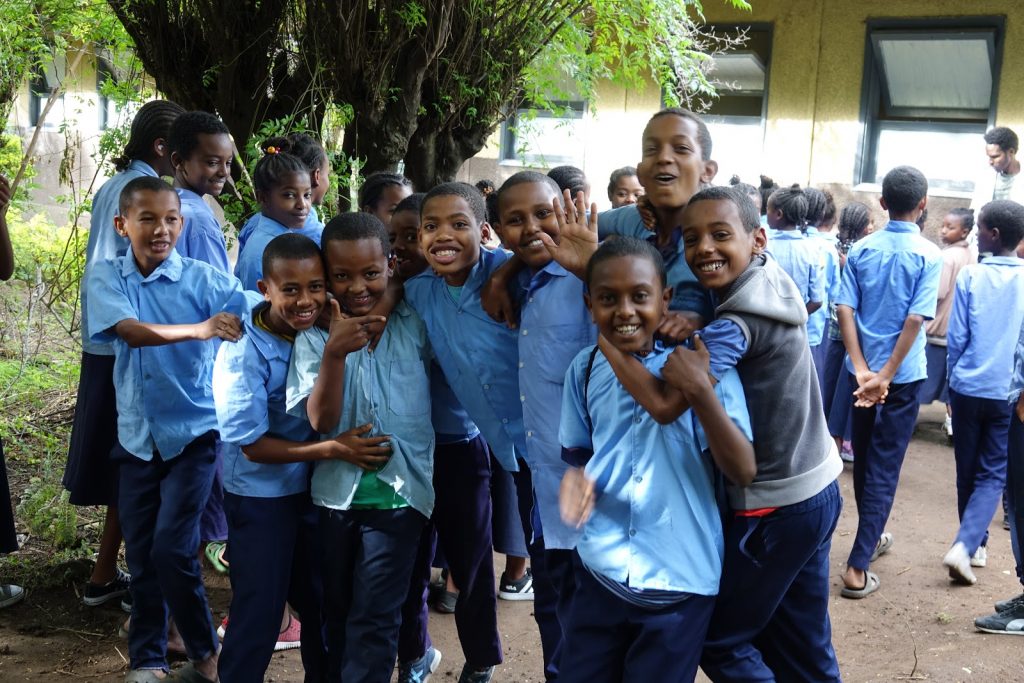I recently returned to Los Angeles from a weeklong trip to Ethiopia, a place where the Catholic Church, with only 1% of the population, has an incredible impact across the entire country.
I went with a superb staff from Catholic Relief Services (CRS). The purpose of the trip was to help its local partners with their programs that help displaced and malnourished people, and to aid its overall efforts in alleviating a variety of problems within the community.
On the first day of my trip, we drove to a town called Meki, which is an apostolic vicariate (the last step before becoming a diocese). We visited the beautiful Our Lady of Perpetual Help Clinic. The clinic serves many children, and offers care to pregnant mothers, from pre-birth to post-birth.
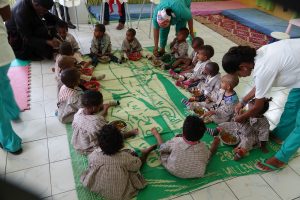
The vicariate there is doing an amazing job to promote and aid the local community. The bishop of Meki, Abraham Desta, owns and operates a large farm outside of the city, where small farmers are trained to be more efficient while raising funds for the vicariate. A variety of food can be found on this farm, from crops to dairy cows, to even vineyards for winemaking!
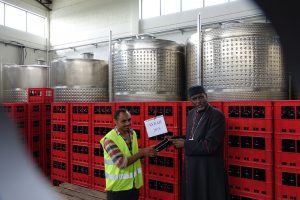
This farm is a unique example of how the Church in mission lands can be creative in serving the people by bringing them new skills for their own livelihoods.
Day two brought a trip to an area where a Women’s Empowerment Project is underway. Centuries of cultural tradition have empowered men to be the absolute authority in each family, while the wives are often relegated to a diminished role.
The new initiative has been designed to create a new paradigm of family life, one where husbands and wives work together, sharing the authority of the family. There is a school in this area as well, teaching both young women and young men the mutuality of the role of husband and wife from an early age.
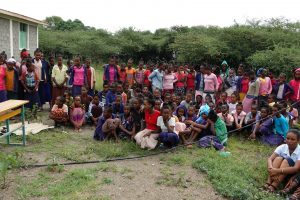
Day three led us to Dire Dawa, where we met with the Catholic Secretariat of the Eparchy of Dire Dawa, who operates all the educational, social, and health projects in this large eparchy.
We then drove through more mountainous lands. CRS has pioneered the terracing of the mountains so that more land was available for food production, as well as to halt erosion of the soil. This initiative has had an enormous impact on the communities.
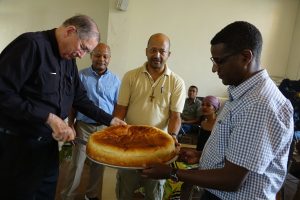
CRS has developed a very creative project to make life easier for people throughout Ethiopia, creating wells and innovative water solutions to provide good, clean water to the local villages. No other project has had such an enormous, multiplier effect upon the local populations. Having clean water changes every aspect of local life — saves time finding water, fewer illnesses, sanitation, and more water for crops.
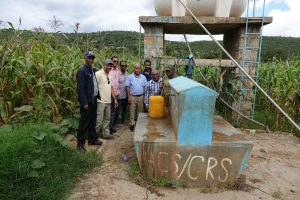
Later, we arrived to an Internally Displaced Persons (IDP) camp in Deder. These people have been displaced due to conflicts involving territory and various groups.
After spending the night in Dire Dawa, we visited several projects in and around the city itself. We saw an orphanage that offers shelter to those children who otherwise would be on the streets at night. It provides a shelter for youth to gather, study, and play Ping-Pong.
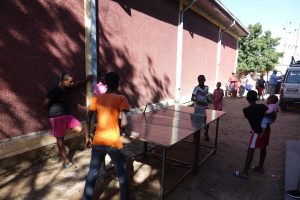
We also visited one of the 15 Ethiopian warehouses that CRS maintains, where there are fresh food items stored in preparation for any sort of disaster. I was especially impressed with CRS’ commitment to pre-staging items needed for various disasters, from typhoons and earthquakes, to displaced persons fleeing their homes.
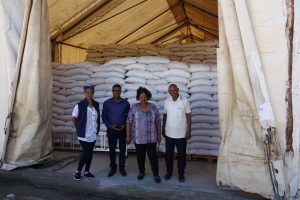
Our visit took us to Notre Dame School, one of the largest Catholic schools in Ethiopia, with more than 1,600 students.
We were fortunate to be able to make a brief visit to the Missionary of Charity Sisters community, where they care for the most neglected and needy people in the area. They provide medical and mental health attention to those in need. With the food supply from CRS, the sisters are able to accommodate and serve so many people.
As you know, immigrants and refugees hold a special place in the heart, soul, and ministry of Pope Francis. He always encourages us to bring “closeness” and “accompaniment” to people on the periphery. This trip allowed me to do that, in his name!
May God continue to inspire all of us, disciples of Jesus, to be alert for the most needy in our midst, and to reach out to them in his name!
